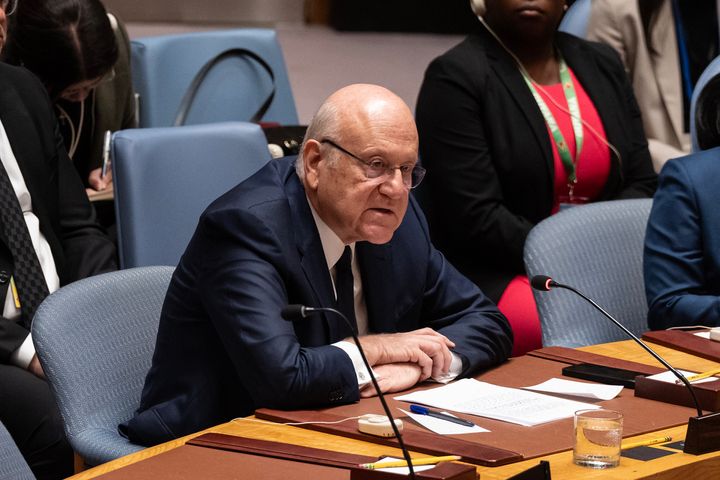Lebanon’s prime minister warned on Sunday that up to a million people in the country may currently be displaced by Israel’s deadly attacks, which has no end in sight despite world leaders cautioning against the escalation out of fear it could turn into an all-out regional war.
After convening an emergency government meeting, Prime Minister Najib Mikati said that while he still wants to pursue a diplomatic solution to the fighting between Israel and militant group Hezbollah, the government must immediately address the mass killing and displacement in Lebanon by the Israeli military.
The prime minister’s video statement said that officially there are more than 118,000 displaced people staying in at least 778 shelters in Lebanon as of Friday, when Israeli forces rapidly escalated their massive assault in Beirut and its residential surroundings. Israel said the blasts killed more than 20 Hezbollah members on Friday, among them the group’s veteran leader Hassan Nasrallah.
“These people are being provided with basic needs like shelter and food, but estimates that the number of displaced people is much higher than this,” Mikati said. “It could reach up to one million people.”
Lev Radin/Pacific Press/LightRocket via Getty Images
The current forced displacement ― particularly from Beirut’s suburbs in the south and from the Bekaa Valley in the east ― is the largest in Lebanese history, he said. The displacement numbers don’t include the more than a thousand people killed in the last two weeks by Israeli forces, over a 100 of which were just from Sunday, according to the Lebanese Health Ministry.
The estimate of one million forcibly displaced people would make up a fifth of Lebanon’s entire population. More than 70,000 people have outright fled Lebanon, mostly into Syria out of fear that the Israeli military will launch a potential ground invasion, according to the United Nations refugee agency (UNHCR), who said the situation for civilians impacted by the strikes is “dire” straits.
Mikati, who less than a week earlier pleaded with the U.N. to protect Lebanese sovereignty, said on Sunday that his government is trying to address the many humanitarian issues that come with the mass migration of forcibly displaced people, including food, water, medical assistance, sanitation and shelters…
Click Here to Read the Full Original Article at World News…

